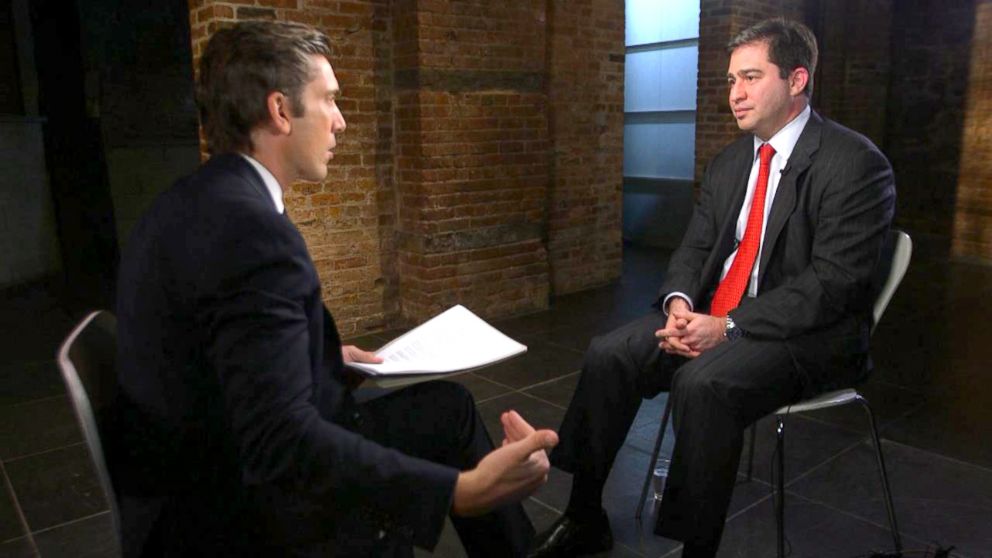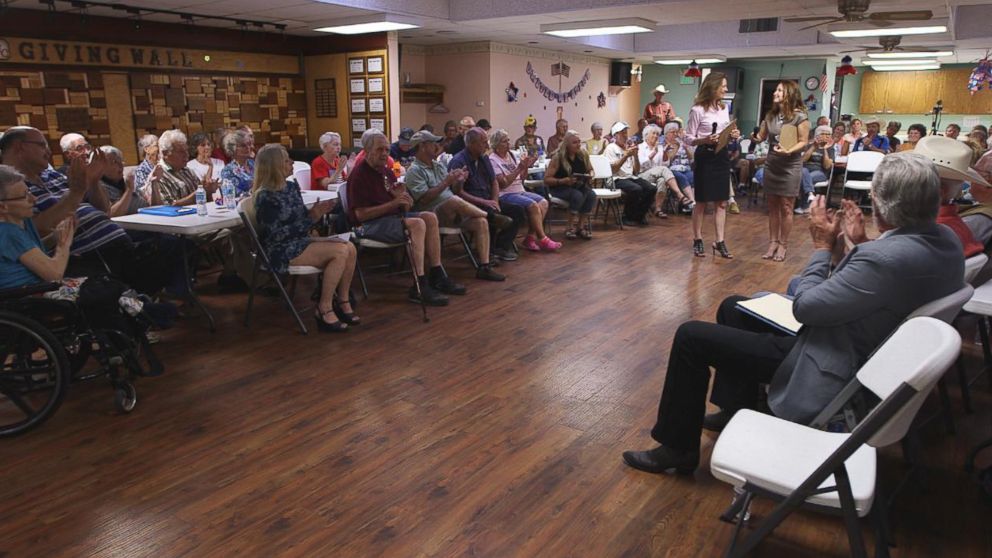Deciding the Future of Guantanamo and Its Prisoners
Debate centers on whether prison should close and detainees should come to U.S.
— -- The detention center at Guantanamo Bay is one of the most notorious prisons in the world.
It's located on the eastern edge of Cuba, on a sprawling naval base where ABC News' David Muir and his team recently traveled.
Since the Sept. 11 attacks, the prison has held nearly 800 detainees, more than 700 of whom have been subsequently cleared for release and transferred to 59 countries, including Uruguay, Albania and Bermuda.
Currently, 19 detainees are cleared for transfer to other countries, which leaves 41 that the U.S. government refuses to release.
See more of David Muir during his trip to Guantanamo on "Nightline" at 12:35 a.m. ET
Among those prisoners are the so-called worst of the worst, including Khalid Sheik Mohammed, the accused mastermind of the 9/11 attacks.
They have become the focus of an ongoing debate about whether the detention center should be closed at all and whether the remaining detainees should be transferred to civilian prisons or military brigs on U.S. soil.
Released Guantanamo Detainees Killed Americans, Officials Believe
Inside the Pentagon Plan for Closing Guantanamo Detention Center
On his second day in office during his first term, President Barack Obama vowed to close the prison within one year.
He has argued the detention center is damaging America's reputation abroad and being used as a recruitment tool in terrorist propaganda.
He also has cited the cost to taxpayers as a reason to close the facility. In 2015, operating costs for the facility were estimated to be $445 million. According to the prison, there were 1,950 personnel assigned to the prison camp zone. Each detainee costs U.S. taxpayers more than $7 million a year.
According to the Department of Defense, Obama's closure plan would reduce the costs of holding these remaining detainees by $140 million to $180 million annually.
But nearly eight years later, Guantanamo remains open and Congress has blocked any move to bring the detainees to the U.S.

Ambassador Lee Wolosky, the U.S. special envoy tasked with the effort to close Guantanamo prison, said his team is working aggressively toward Obama's goal.
"We remain committed to working with the Congress to remove the transfer ban," he said. "There's no question that Guantanamo houses some dangerous, hardened terrorists including individuals who are responsible for the 9/11 attacks. ... KSM (Muhammad) and others currently on trial but as the president has said, what we intend to do, what we want to do is work with the Congress to find a suitable facility in the United States."
One such facility the Pentagon is considering is ADX Supermax in Florence, Colorado. ABC News spoke with several residents who live near the prison and oppose the plan.
The Florence Supermax already holds several high-profile terrorists including Zacarias Moussaoui, who helped plan the 9/11 attacks, and Theodore Kaczynski, the Unabomber, as well as Dzhokhar Tsarnaev, the Boston bomber. It is considered one of the most secure prisons in the world.
ABC News attended a town meeting in July led by Molly Vogt and Kim Monson, two conservative radio hosts who call themselves the "Americhicks." Residents at the meeting publicly expressed their concerns.

"What we have to remember is these people are not just terrorists, they're gods in their world," Cassandra Sebastian said. "They are people that have done a lot of damage to Americans. … I wouldn't want to move here if I knew terrorists from Guantanamo Bay were moving here."
"These are the people who are building the bombs, who are finding and encouraging the folks," Rob Fountain said. "My biggest concern is that you have politicians and bureaucrats that are making decisions for communities that don’t affect them."
"I'm much more concerned that their supporters or followers that have been able to get into this country one way or another will come and attack our community and try to leverage us and get those prisoners out of the prisons," Gregory Carlson said. "Why is the government bringing the war [here]?”
During ABC News' visit, Col. David Heath, the commander of the military prison, told Muir that the inmates at Guantanamo were no more dangerous than those currently in maximum-security facilities in the U.S.
Many of the detainees have been at the prison for more than 14 years; some are nearing age 70. Only nine of the nearly 800 have ever been charged or tried.
Heath, who was essentially the prison's warden, told Muir: "We treat people [with] dignity and respect at Guantanamo Bay. Whether people want to believe that or not, I don't care but we do it."
Heath said in the last two years that he was in charge of the detainees, he'd noticed more of an understanding between guards and detainees at the Guantanamo prison. He said there were fewer hunger strikes among prisoners and fewer clashes with the guards. Heath attributed this to the fact that many detainees sensed that they could be getting out.
"I know the State Department is working very hard to find these detainees places to go," he said. "Until I have a place to send all of the detainees obviously ... I have to keep the lights on, the air conditioning running and all of the services that are required to maintain custody and control of these people. I have to keep doing that."
The State Department has been negotiating with other countries to take the prisoners who pose the least risk once they're transferred. Obama has personally made some of the calls.
But some detainees who have been released have returned to terror, according to a recent report by the Director of National Intelligence. The report revealed that a total of nine had done so since Obama began transfers.
The administration said that it had enhanced detainee vetting with six national security agencies approving each release. It also pointed that 113 detainees released under President George W. Bush had reportedly returned to terrorism.
"It is a risk to release detainees and to see a very small percentage of them reengage in some respect with organizations that wish to do us harm," Wolosky said. "However, you have to measure that against the risk of keeping the facility open, the risk that it does to our national security, the risk that it does to our image and to our values and of course the extremely financial burdens that we bear in keeping this facility open."
With only 20 days until the election, the detention center's future may be decided by the next commander-in-chief.
GOP presidential nominee Donald Trump has said he wants to send more people to the prison. Hillary Clinton stands by Obama's plan to shut it down.




